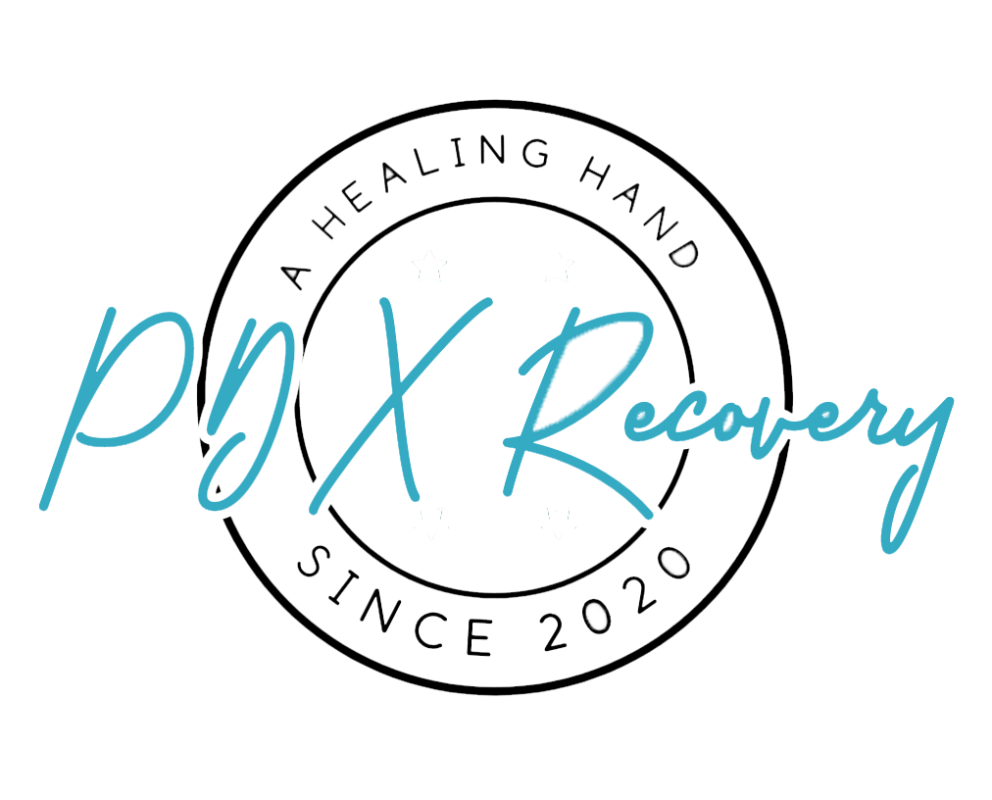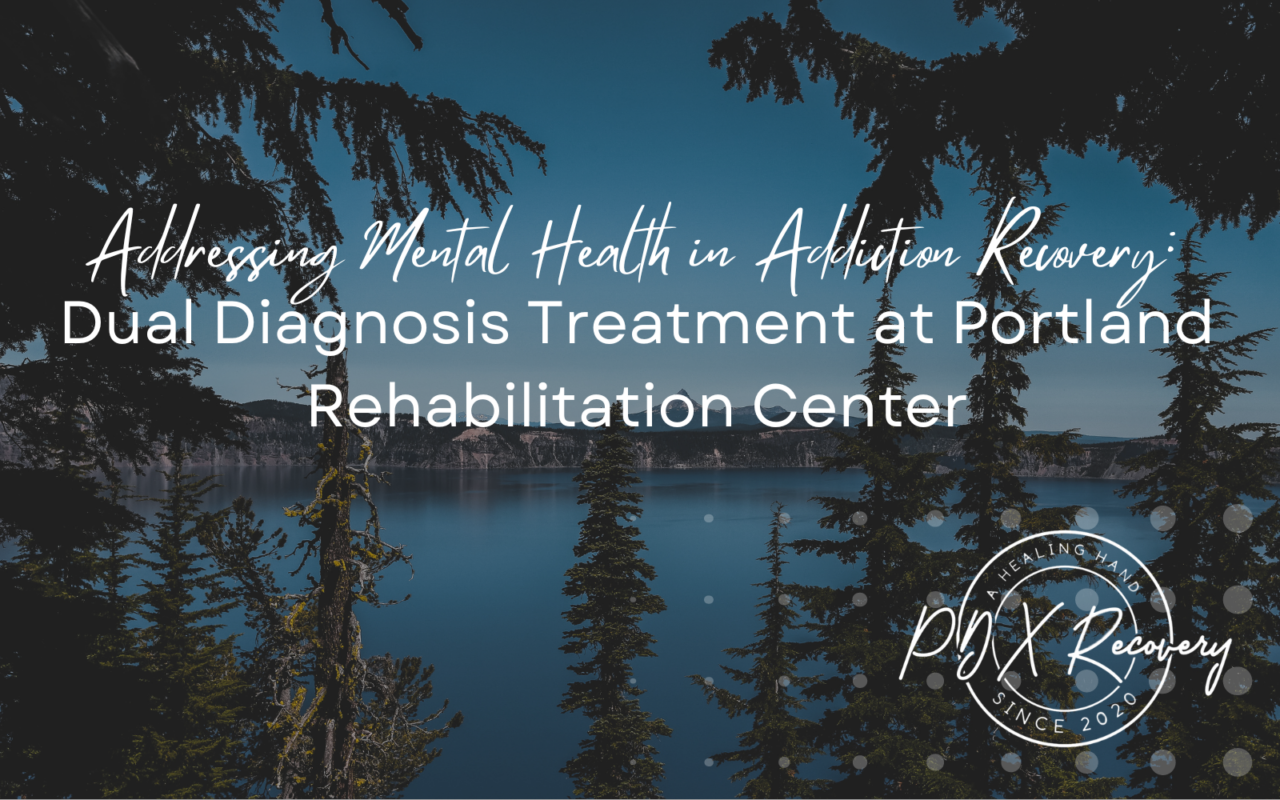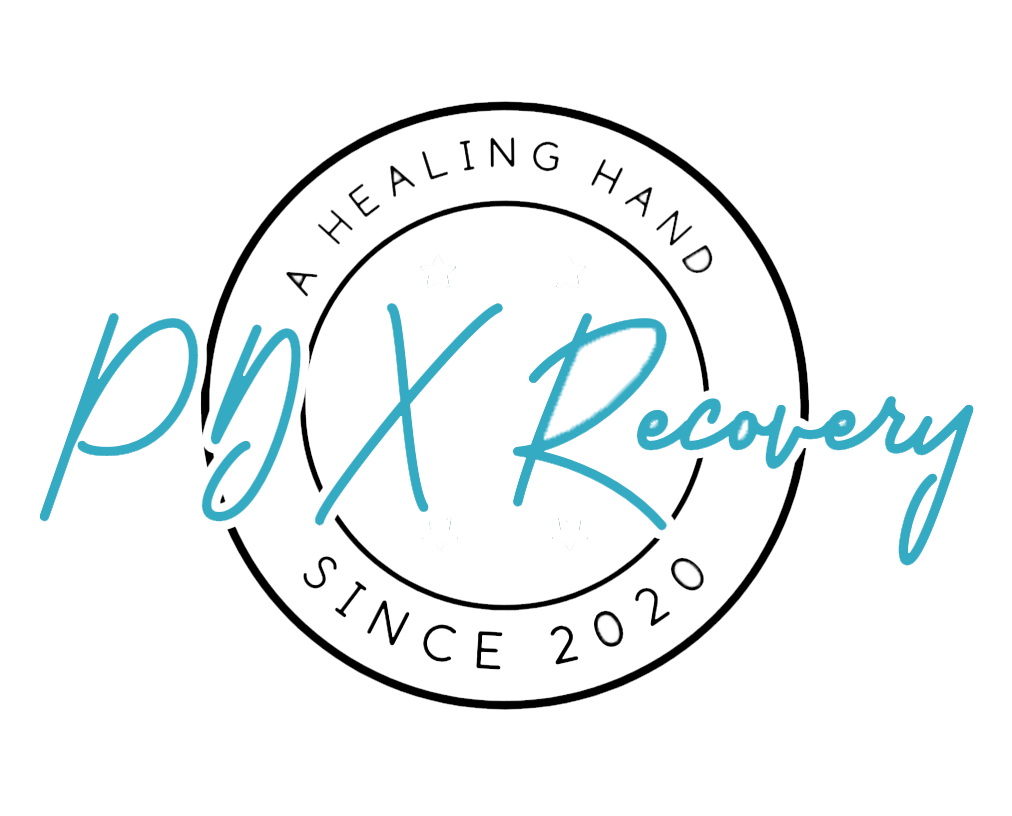Recovery and Mental Health: An Uphill Battle
Recovery can feel like an uphill battle, especially when addiction is coupled with mental health challenges. For many, addressing both issues simultaneously is crucial for successful recovery. This is where dual diagnosis treatment shines. In this blog post, we’ll explore the importance of addressing mental health within addiction recovery at a Portland Rehabilitation Center.
Navigating the Path to Recovery with Dual Diagnosis Treatment
The road to recovery from addiction is often fraught with obstacles, and when mental health disorders are also present, the path can become even more challenging. Co-occurring disorders, also known as dual diagnoses, involve the simultaneous presence of substance use disorders and mental health conditions. The significance of addressing these co-occurring disorders cannot be overstated, as they are prevalent among individuals battling addiction.
Portland Rehabilitation Center stands out as a facility specializing in dual diagnosis treatment, offering a comprehensive and integrated approach to help individuals overcome both addiction and mental health challenges. This blog post will explore how addressing mental health within addiction recovery can lead to more successful outcomes and how Portland Rehabilitation Center’s unique approach can make a significant difference.
Understanding Co-Occurring Disorders
Co-occurring disorders refer to the simultaneous occurrence of a substance use disorder and a mental health condition. Unlike having just one disorder, individuals with co-occurring disorders face unique challenges that require specialized treatment. For example, someone might struggle with alcoholism and depression or opioid addiction and anxiety.
Statistics show that co-occurring disorders are common among individuals with addiction. According to the National Institute on Drug Abuse (NIDA), nearly half of those who experience a mental health disorder during their lives will also experience a substance use disorder and vice versa. Common mental health disorders that coexist with addiction include depression, anxiety, bipolar disorder, and post-traumatic stress disorder (PTSD). These conditions often exacerbate each other, making it essential to address both simultaneously.
The Complex Relationship Between Addiction and Mental Health
The relationship between addiction and mental health is complex and bidirectional. Mental health disorders, such as depression, anxiety, and PTSD, can lead to substance abuse as individuals may use drugs or alcohol to self-medicate their symptoms and seek temporary relief. This coping mechanism, however, often exacerbates the underlying mental health issues, creating a vicious cycle that’s difficult to break.
Conversely, prolonged substance abuse can lead to the development of mental health disorders due to the chemical changes and stressors it imposes on the brain. For instance, chronic use of substances like alcohol, opioids, or stimulants can alter brain chemistry, impacting mood regulation and cognitive function, which can trigger or worsen mental health conditions.
This intricate interplay underscores the importance of addressing both issues simultaneously through dual diagnosis treatment. Such an approach not only aims to treat the substance abuse but also tackles the co-occurring mental health disorder, providing a more holistic and effective path to recovery. By understanding and addressing the root causes, individuals stand a better chance of achieving lasting sobriety and mental wellness.
Importance of Dual Diagnosis Treatment
Addressing mental health is crucial in addiction recovery for several reasons. Untreated mental health issues can hinder the success of addiction treatment. For instance, someone dealing with untreated depression may relapse into substance use to self-medicate their symptoms. Therefore, treating both addiction and mental health issues concurrently is vital for long-term recovery.
Dual diagnosis treatment offers several benefits. By addressing both conditions simultaneously, individuals receive comprehensive care that tackles the root causes of their struggles. This integrated approach increases the chances of successful recovery and reduces the likelihood of relapse. Specialized facilities like Portland Rehabilitation Center have the expertise and resources to provide effective dual diagnosis treatment, ensuring that individuals receive the support they need to heal.
Approach to Addressing Mental Health in Dual Diagnosis Treatment
Portland Rehabilitation Center employs an integrated approach to treat co-occurring disorders. This approach involves creating individualized treatment plans tailored to address both addiction and mental health needs. Each person’s experience is unique, and their treatment should reflect that.
Different types of therapies and techniques are used in dual diagnosis treatment. Cognitive-behavioral therapy (CBT) helps individuals identify and change negative thought patterns contributing to their addiction and mental health issues. Medication management ensures that individuals receive the appropriate medications to manage their conditions safely and effectively. Other therapies, such as dialectical behavior therapy (DBT), can also be beneficial in addressing co-occurring disorders.
Therapeutic Interventions for Dual Diagnosis Treatment
Several therapeutic interventions are utilized in dual diagnosis treatment to address the complex needs of individuals with co-occurring disorders. These interventions are designed to help patients understand the connections between their mental health and substance use, develop coping strategies, and build healthier lifestyles.
- Cognitive-Behavioral Therapy (CBT): CBT is a widely used therapeutic approach that helps individuals identify and change negative thought patterns and behaviors. In dual diagnosis treatment, CBT is effective in addressing both addiction and mental health issues by helping patients develop healthier ways of thinking and coping. This therapy involves structured sessions where therapists work with patients to recognize dysfunctional thoughts, challenge them, and replace them with more positive and realistic ones. Through CBT, individuals learn practical skills to manage stress, reduce relapse risk, and improve overall psychological well-being.
- Dialectical Behavior Therapy (DBT): DBT is a form of cognitive-behavioral therapy that emphasizes the development of mindfulness, emotional regulation, distress tolerance, and interpersonal effectiveness. DBT has been found to be particularly beneficial for individuals with co-occurring disorders, such as depression, anxiety, and substance abuse. By teaching clients to manage intense emotions, improve their coping mechanisms, and reduce self-destructive behaviors, DBT provides a comprehensive framework to help individuals lead more balanced and fulfilling lives. Sessions typically involve individual therapy, group skills training, and phone coaching to ensure continuous support and reinforcement of learned skills.
- Medication Management: Medications can be an essential component of dual diagnosis treatment, addressing both mental health disorders and substance abuse issues. They help manage the symptoms of mental health disorders, reduce cravings, and prevent relapse. For example, antidepressants may be prescribed for depression, while anti-anxiety medications can help with anxiety disorders. The medical team at Portland Rehabilitation Center carefully monitors and adjusts medications to ensure the safety and well-being of patients. Regular check-ups and consultations are conducted to assess the effectiveness of the medications and to make any necessary adjustments, ensuring a tailored approach for each individual’s needs.
- Motivational Interviewing (MI): MI is a client-centered therapeutic approach that helps individuals explore and resolve ambivalence about change. Developed by clinical psychologists William R. Miller and Stephen Rollnick, it is particularly effective in engaging individuals in their treatment process and enhancing their motivation to recover from both addiction and mental health issues. By fostering a collaborative partnership between the therapist and the client, MI encourages the client to voice their own reasons for change and to develop a personal commitment to the therapeutic goals. This method has been widely adopted in various clinical settings due to its flexibility and proven effectiveness.
- Trauma-Informed Care: Many individuals with co-occurring disorders have experienced significant trauma, which can profoundly impact their mental health and substance use. Trauma-informed care recognizes the importance of understanding the effects of trauma and tailors treatment to address these specific needs. This approach incorporates strategies to create a safe and supportive treatment environment, ensuring that care is sensitive to the individual’s history and promotes healing and recovery. By acknowledging and addressing trauma, providers can offer more effective and compassionate care.

Holistic Approach to Recovery
Portland Rehabilitation Center incorporates holistic practices such as yoga, meditation, and nutrition into their dual diagnosis treatment program. These practices benefit the overall well-being of individuals in recovery by addressing mental, physical, and spiritual health. Yoga and meditation help individuals manage stress, improve mental clarity, and foster a sense of inner peace. Proper nutrition supports physical health and provides the energy needed for recovery.
Holistic practices are integrated into the treatment plans, offering a well-rounded approach to healing. By addressing all aspects of an individual’s health, the center ensures that patients receive comprehensive care that promotes lasting recovery.
Incorporating Holistic Practices into Dual Diagnosis Treatment
Holistic practices are an integral part of dual diagnosis treatment at Portland Rehabilitation Center. These practices complement traditional therapeutic interventions and enhance overall well-being. The center offers a range of holistic therapies that address the mind, body, and spirit.
- Yoga: Yoga is a practice that combines physical postures, breathing exercises, and meditation. It helps individuals in recovery build physical strength, improve flexibility, and reduce stress. Yoga also promotes mindfulness and self-awareness, which are crucial for managing mental health and addiction.
- Meditation and Mindfulness: Meditation and mindfulness practices help individuals develop a greater awareness of their thoughts, feelings, and bodily sensations. These practices can reduce anxiety, depression, and cravings while promoting emotional balance and resilience.
- Nutrition Counseling: Proper nutrition is vital for physical and mental health. Nutrition counseling at Portland Rehabilitation Center helps individuals understand the importance of a balanced diet and provides guidance on making healthy food choices that support recovery.
- Art and Music Therapy: Creative therapies such as art and music therapy provide individuals with non-verbal ways to express their emotions and experiences. These therapies can be particularly beneficial for those who find it difficult to articulate their feelings through words.
- Exercise and Physical Activity: Regular physical activity is essential for overall health and well-being. Exercise can improve mood, reduce stress, and enhance physical health. The center offers various opportunities for physical activity, including fitness classes and outdoor activities.
Ongoing Support and Aftercare
Ongoing support and aftercare are essential for maintaining long-term recovery from co-occurring disorders. Portland Rehabilitation Center offers various resources and services to help individuals continue their healing journey. Support groups, individual counseling, and relapse prevention programs are just a few examples of the ongoing support available.
Aftercare programs are designed to provide individuals with the tools and strategies needed to maintain their sobriety and mental health stability. By staying connected to the support network and resources offered by Portland Rehabilitation Center, individuals can build a strong foundation for lasting recovery.
Types of Aftercare Services at Portland Rehabilitation Center
- Support Groups: Support groups provide individuals with a sense of community and connection. They offer a safe space to share experiences, receive encouragement, and build relationships with others who understand the challenges of recovery.
- Individual Counseling: Continued individual counseling helps individuals address ongoing issues, set goals, and develop strategies for maintaining their recovery. Counseling sessions can also provide support during difficult times and help prevent relapse.
- Relapse Prevention Programs: Relapse prevention programs teach individuals how to identify triggers, develop coping strategies, and create action plans to avoid relapse. These programs are essential for maintaining long-term sobriety and mental health stability.
- Family Support Services: Family involvement is crucial in the recovery process. Family support services provide education and counseling to help family members understand co-occurring disorders and learn how to support their loved ones in recovery.
- Sober Living Homes: Sober living homes offer a structured and supportive environment for individuals transitioning from treatment to independent living. These homes provide a safe space to practice recovery skills and build a sober lifestyle.
- Vocational and Educational Support: Vocational and educational support services help individuals develop new skills, pursue educational opportunities, and find meaningful employment. These services are essential for building a fulfilling and stable life in recovery.
Finding Comprehensive Care
Addressing mental health in addiction recovery through dual diagnosis treatment is crucial for achieving long-term success. Portland Rehabilitation Center offers a specialized approach that tackles both addiction and mental health issues, providing comprehensive care that increases the chances of successful recovery.
By understanding the importance of treating co-occurring disorders, providing individualized and integrated care, and incorporating holistic practices, Portland Rehabilitation Center offers a unique and effective approach to helping individuals recover. With ongoing support and aftercare services, individuals can continue their journey towards a healthier and happier life.
If you or a loved one are struggling with co-occurring disorders, know that hope and help are available at Portland Rehabilitation Center. Take the first step towards recovery and reach out for the support you need. The journey to recovery may be challenging, but with the right treatment and support, a fulfilling and sober life is possible. For more information visit our website at https://pdx-recovery.com/ or call us at (971) 256-9087.






